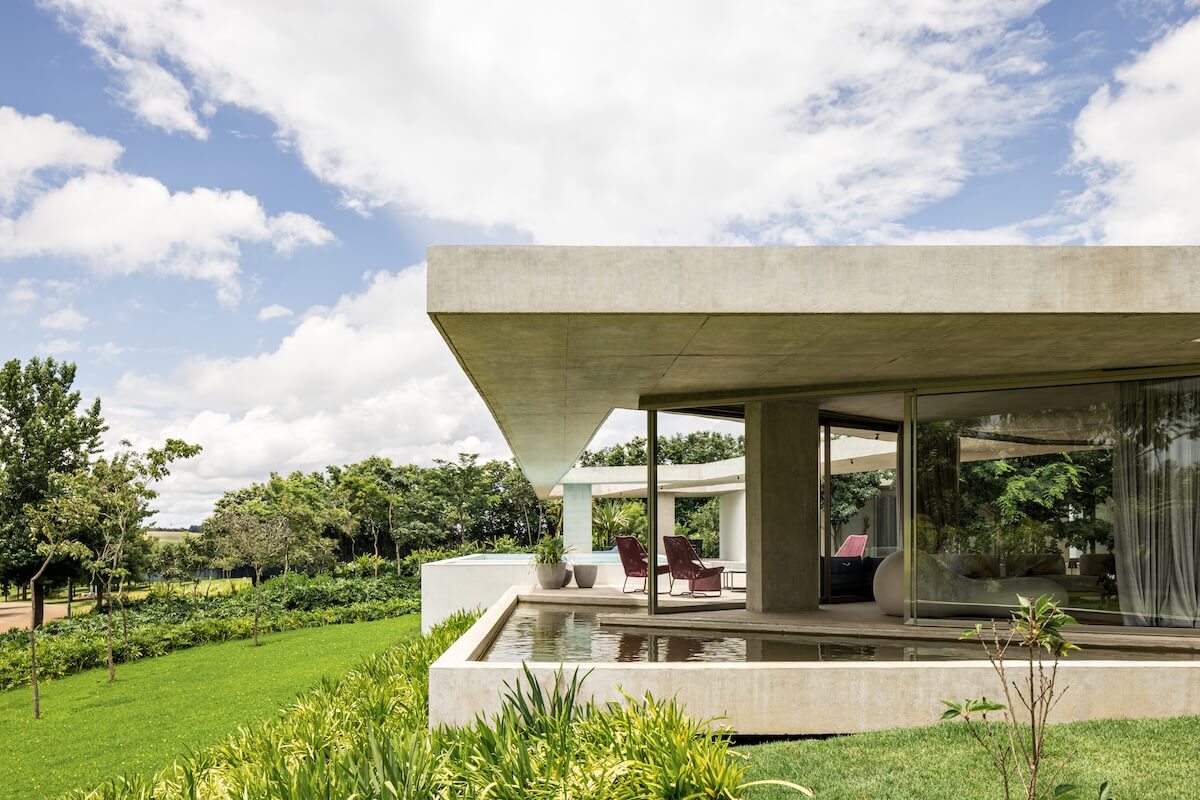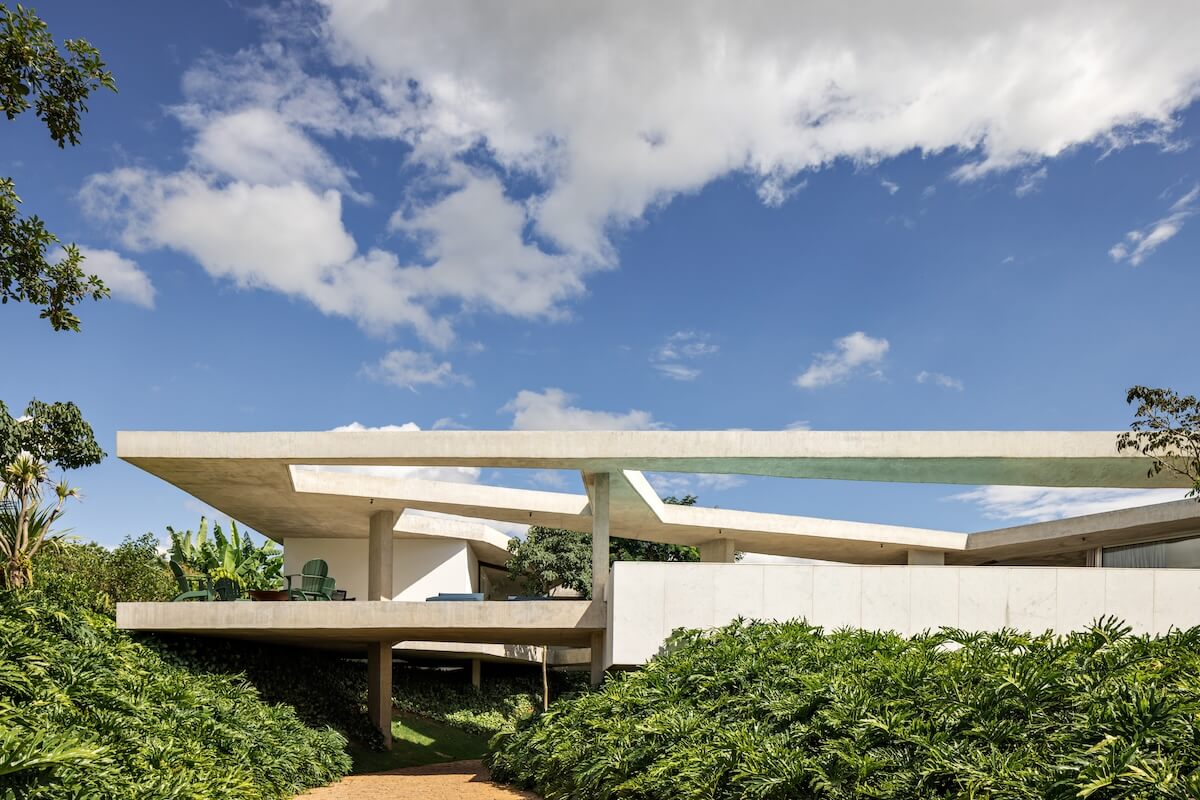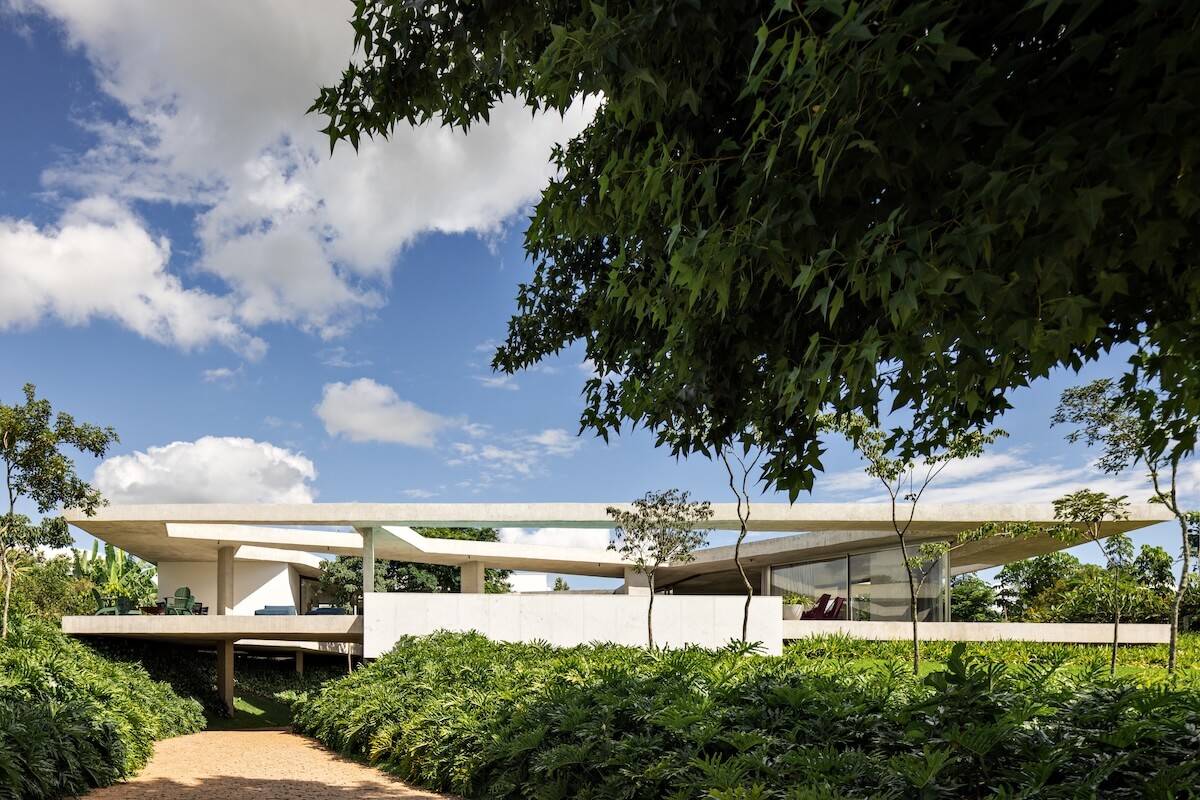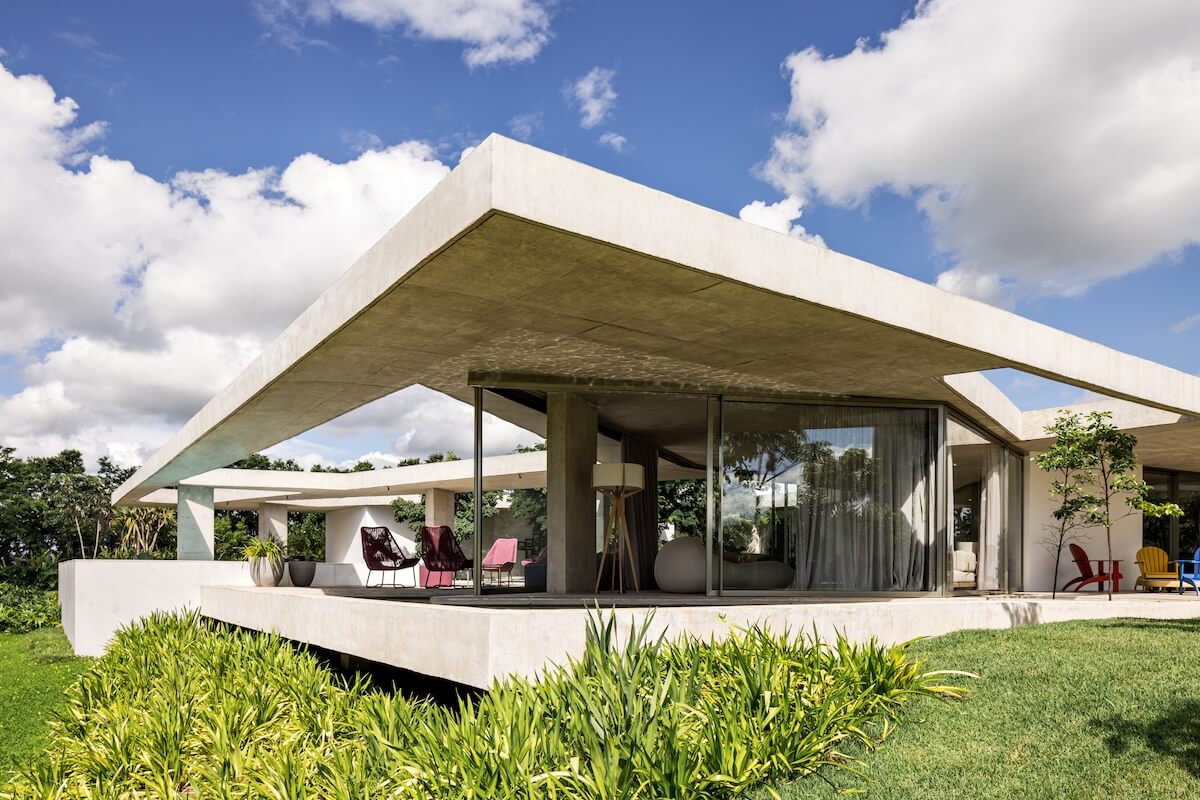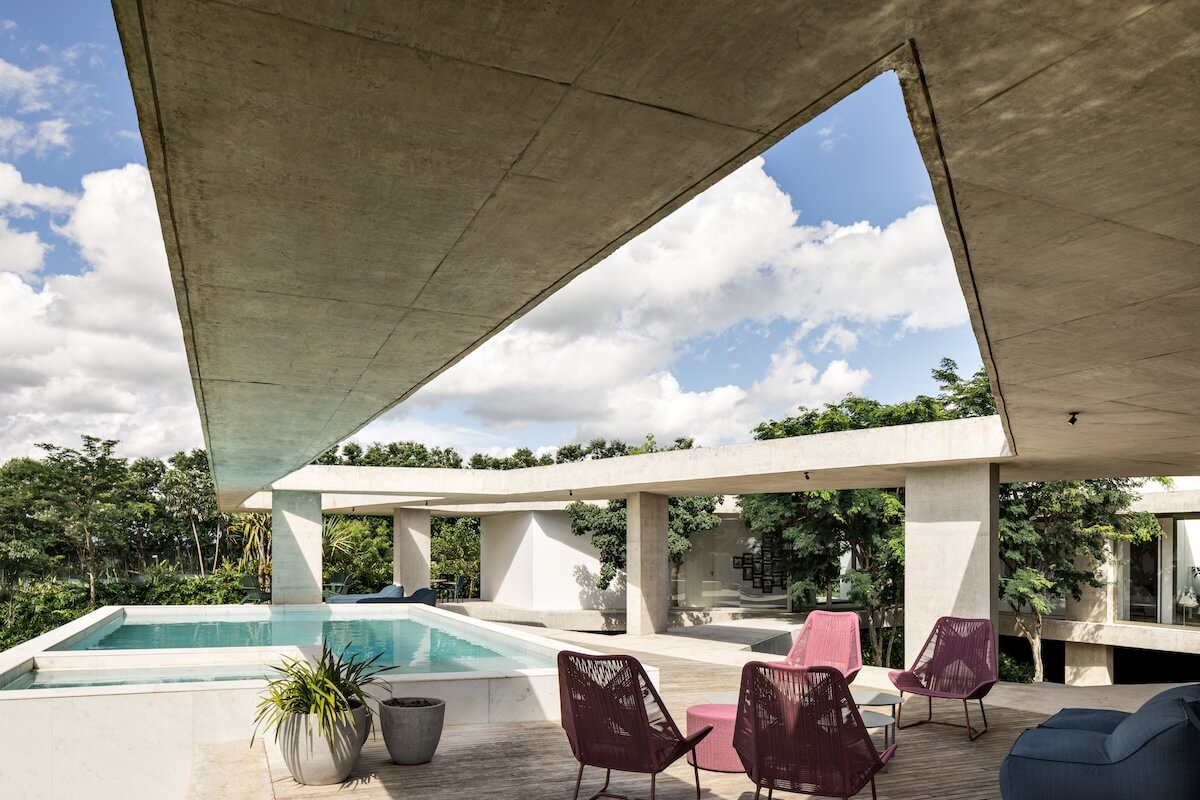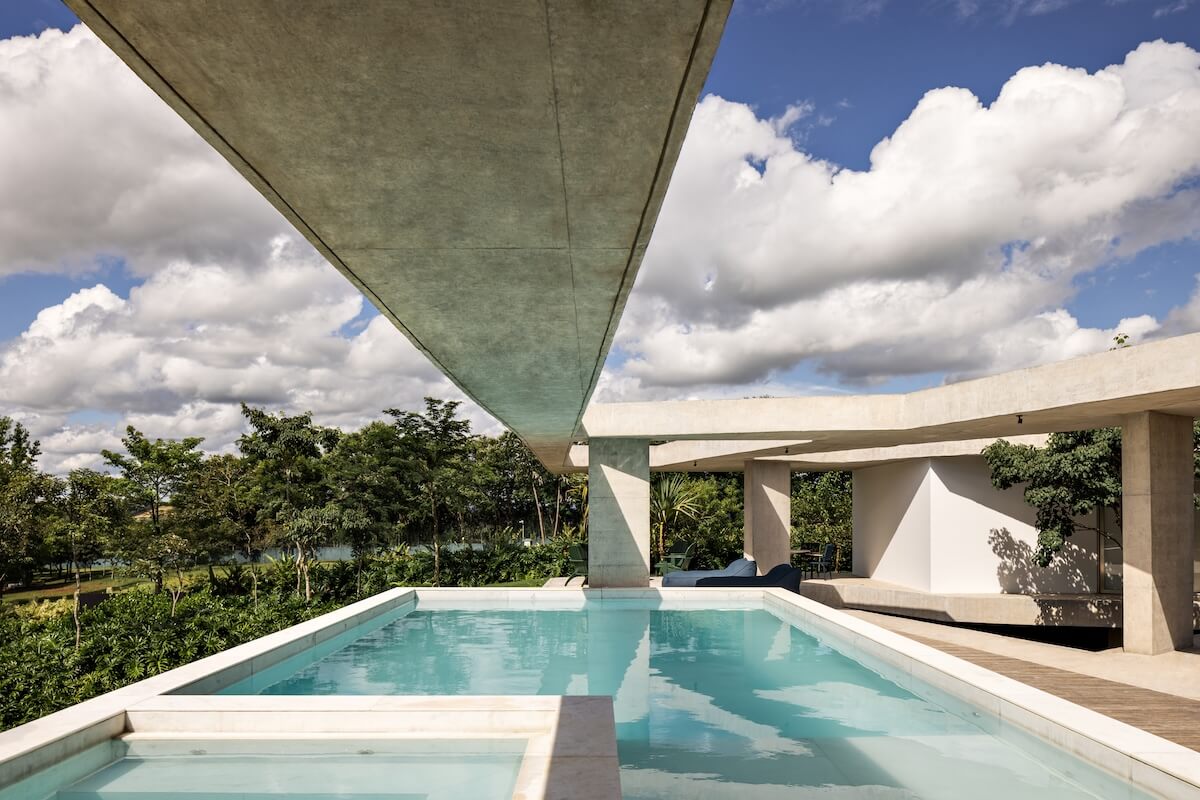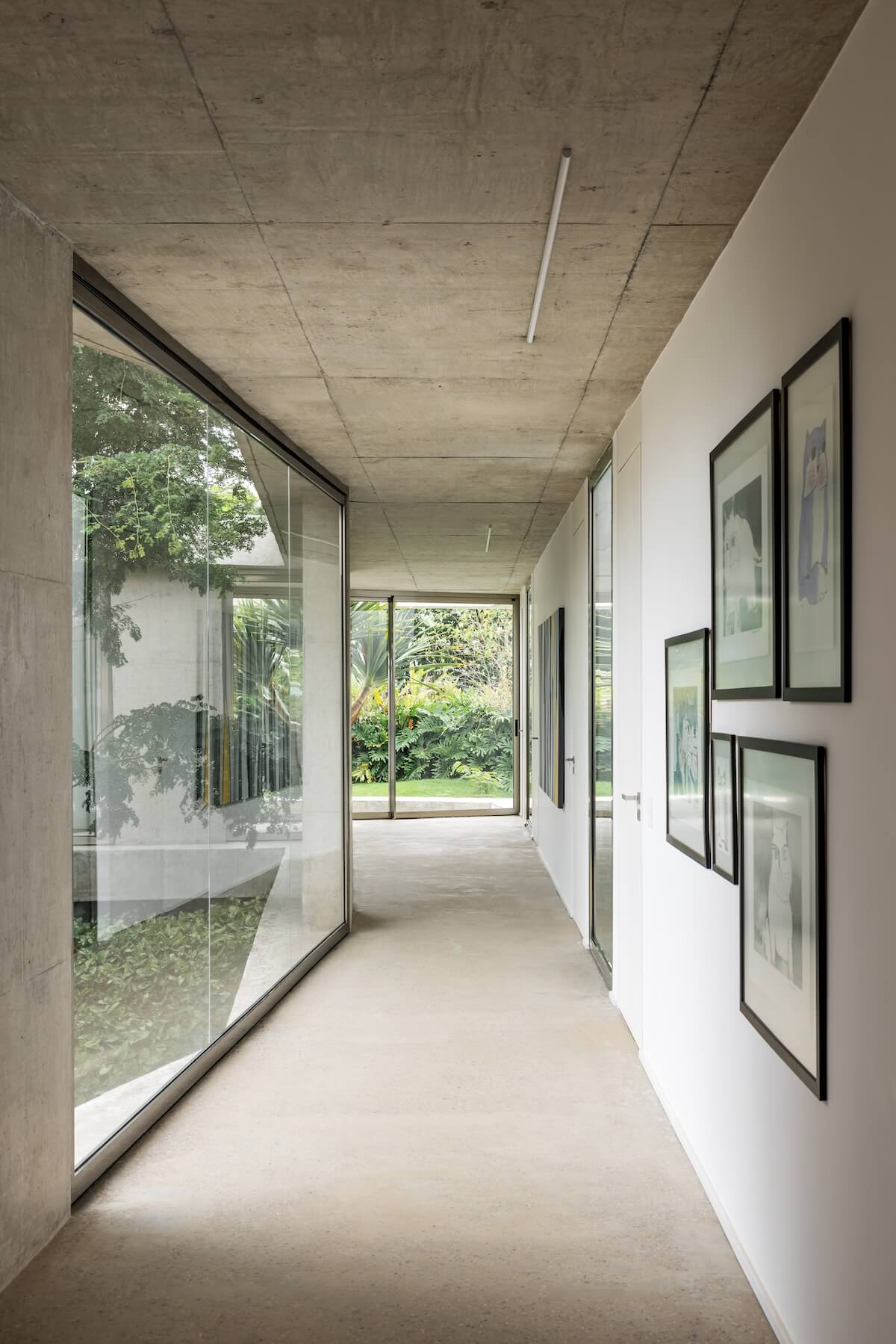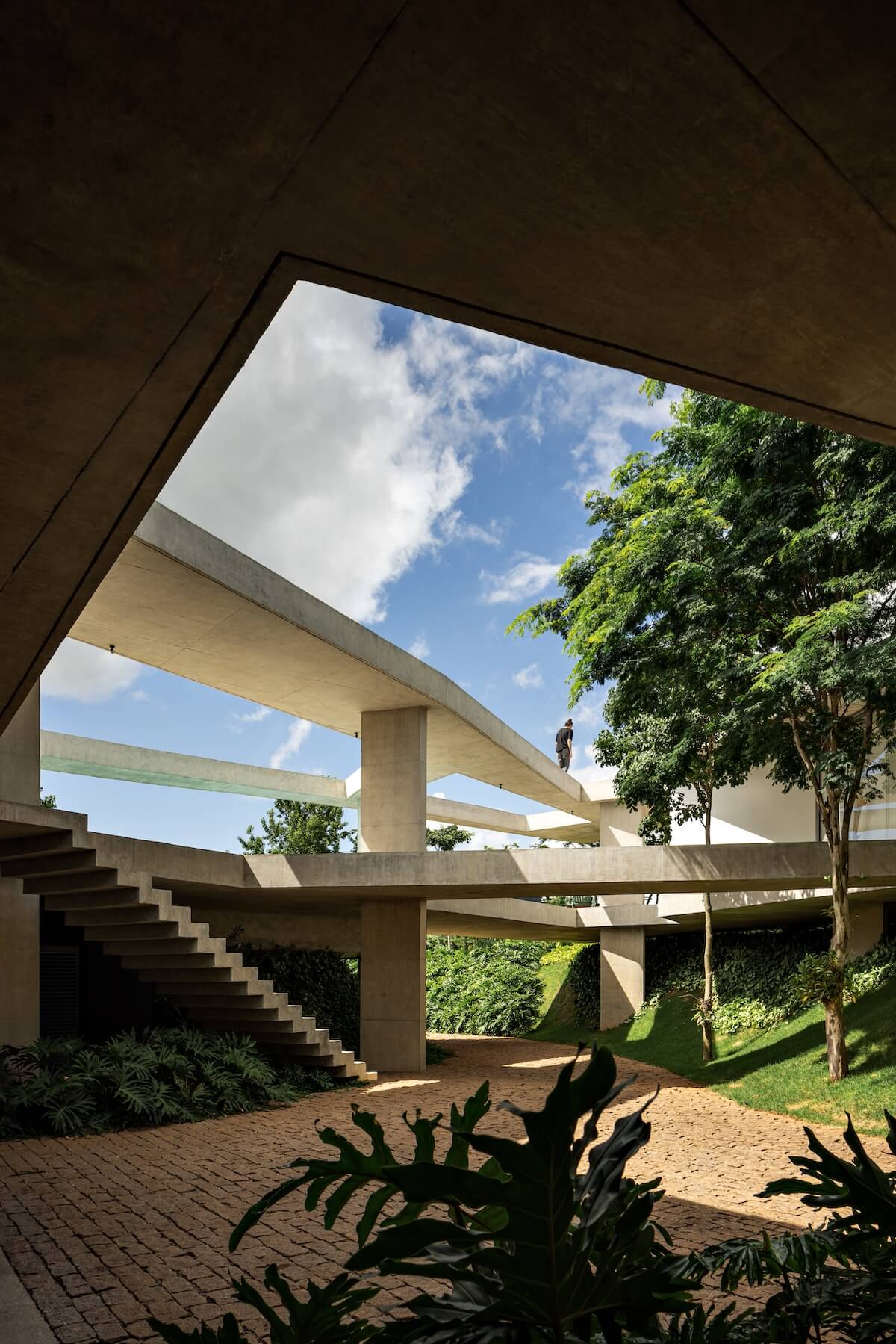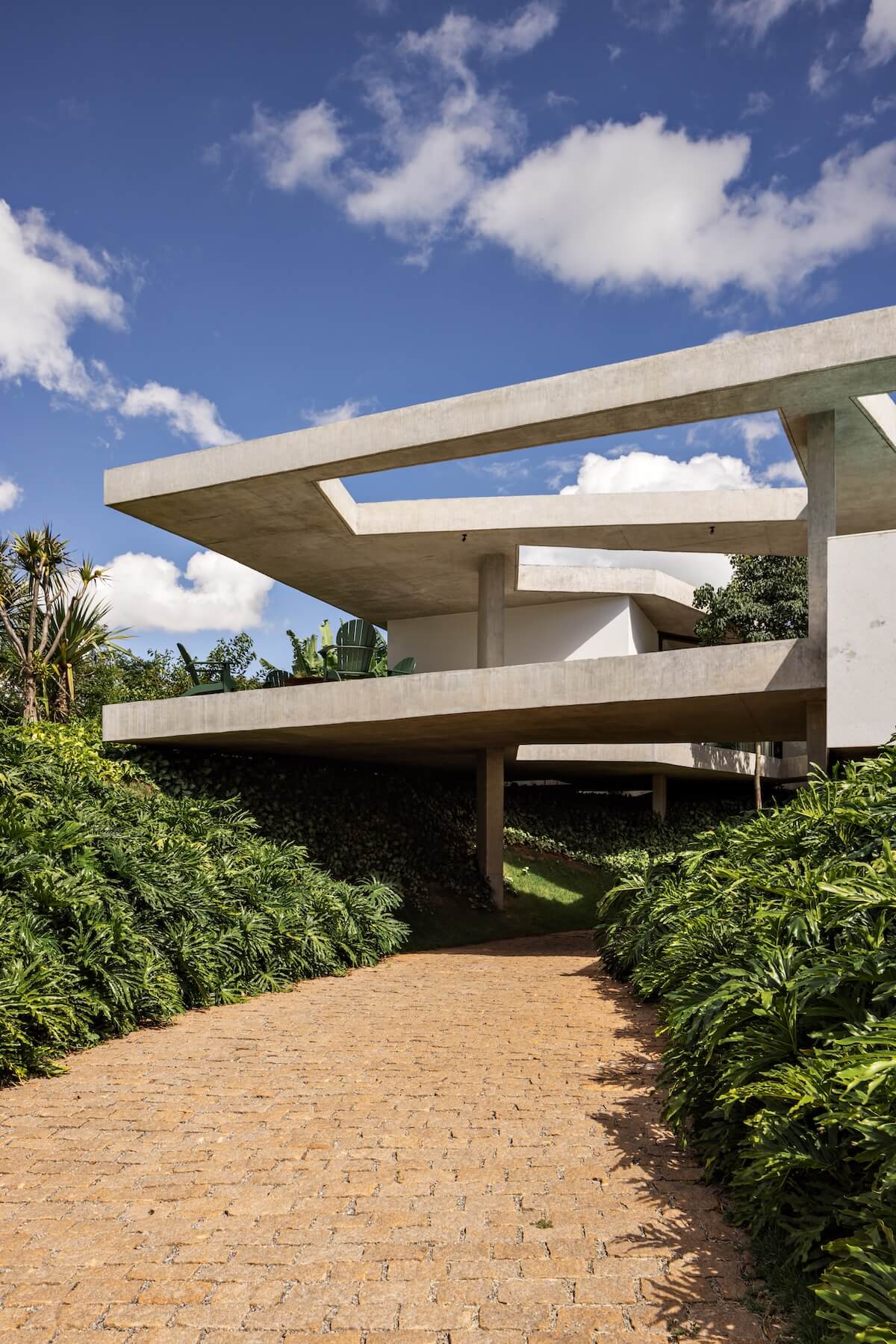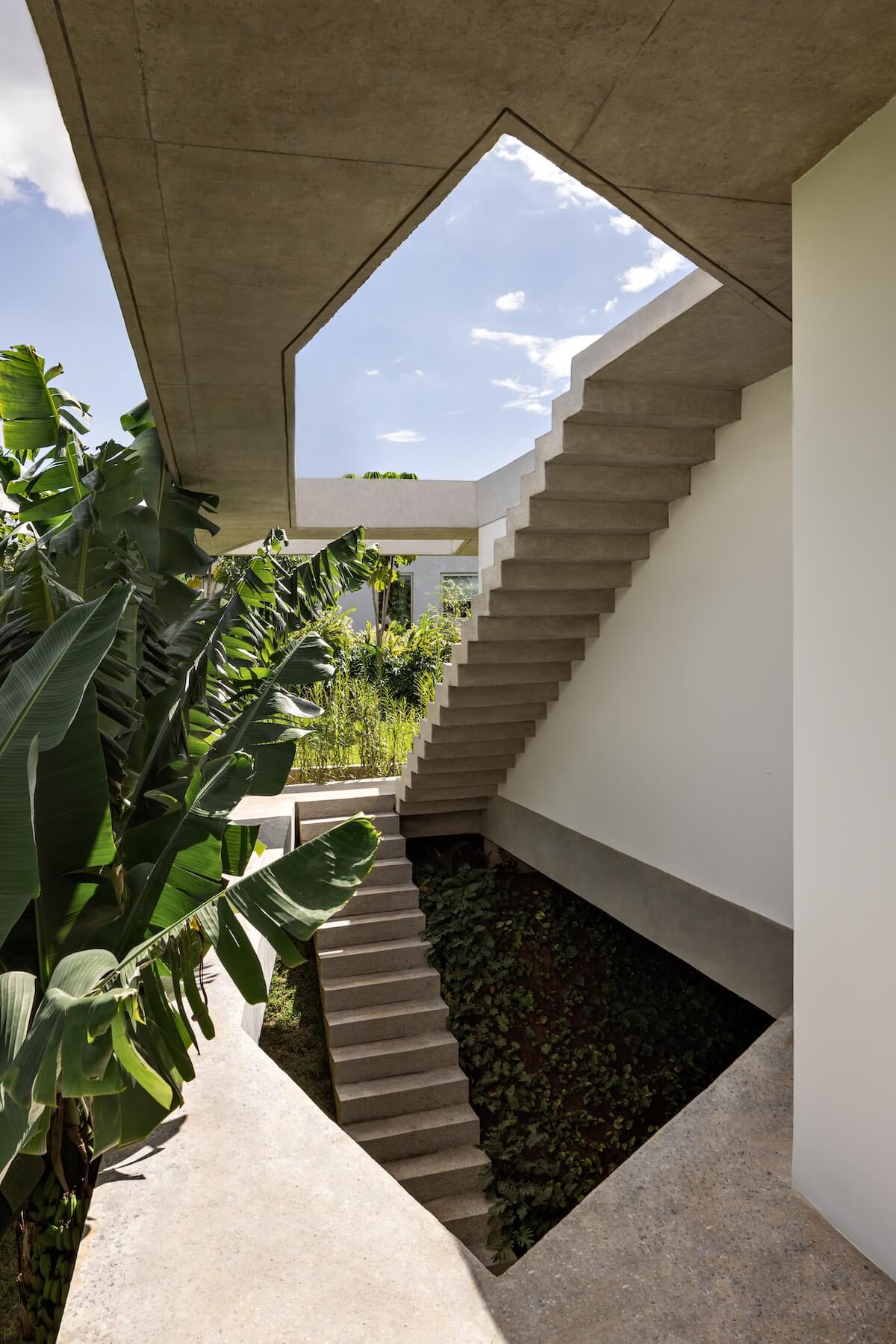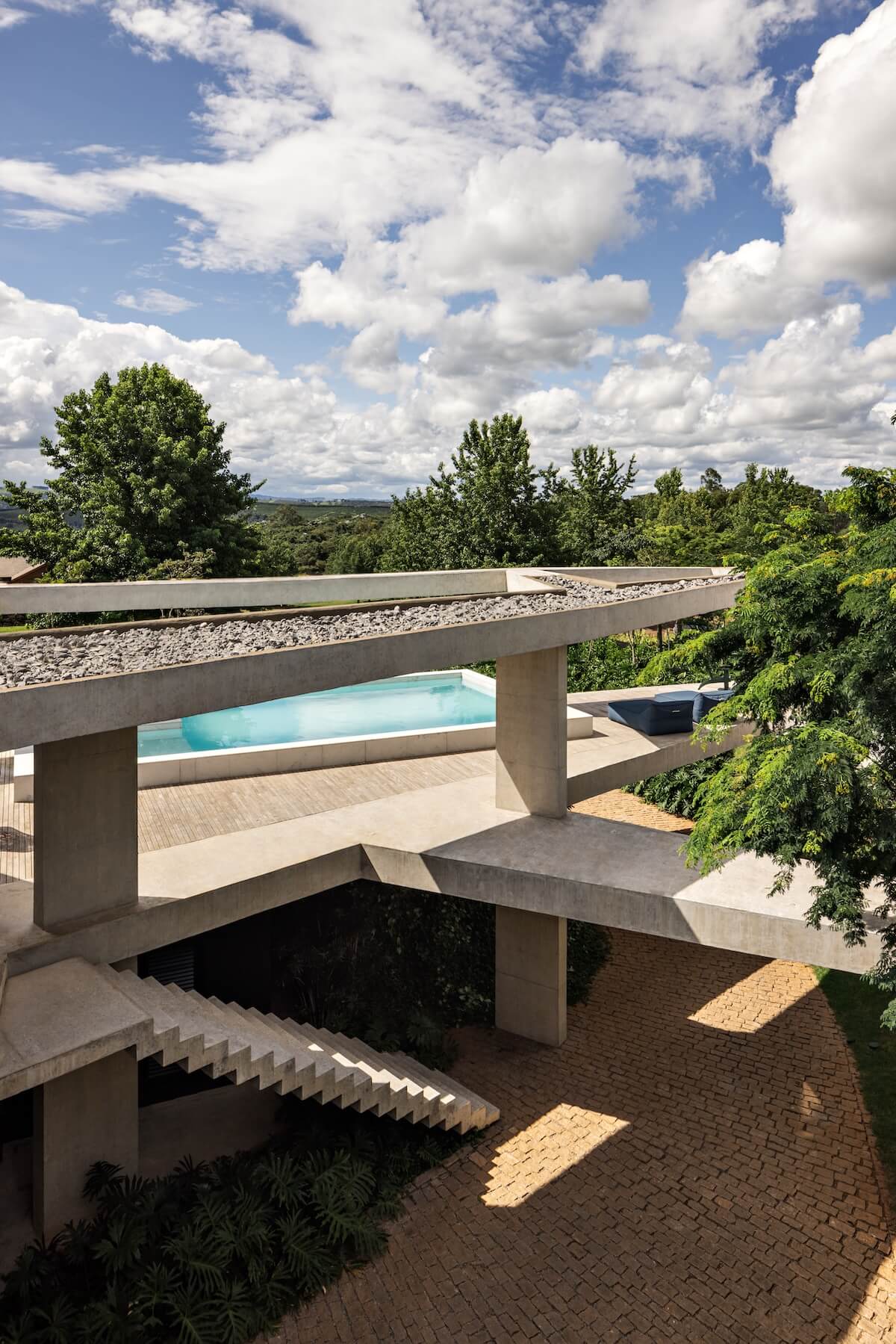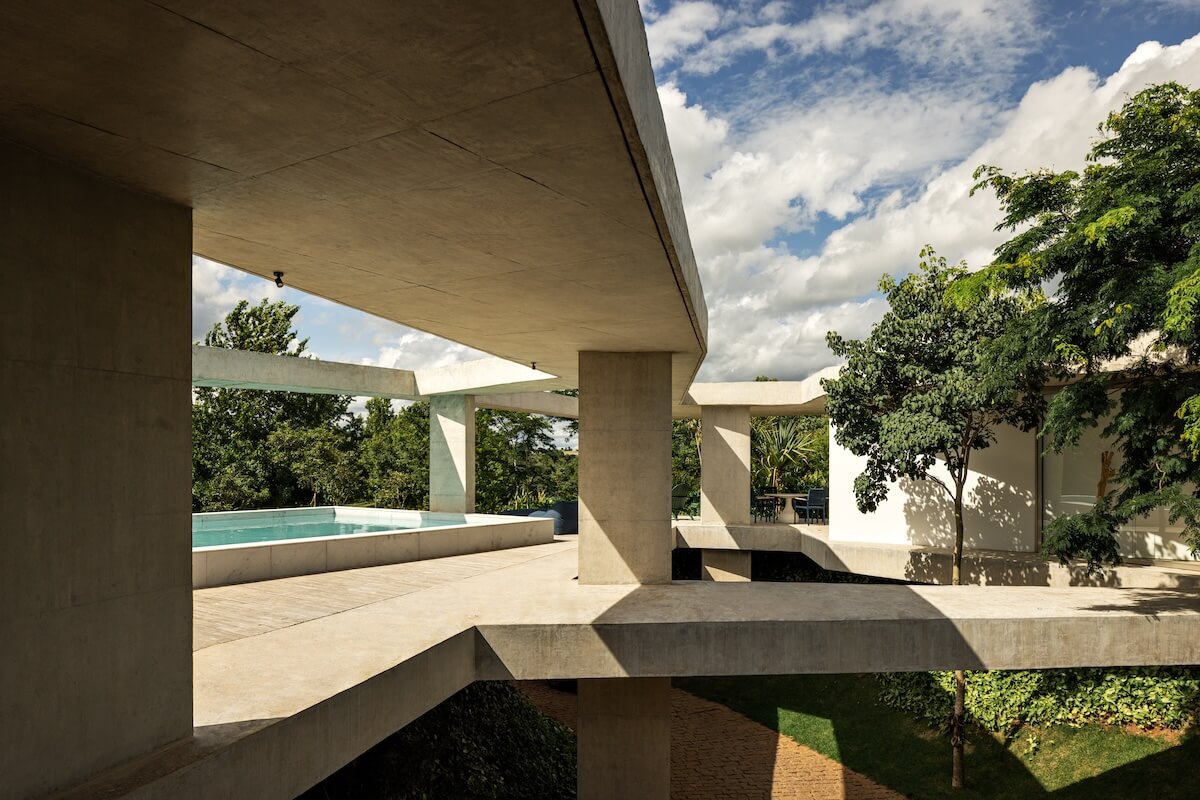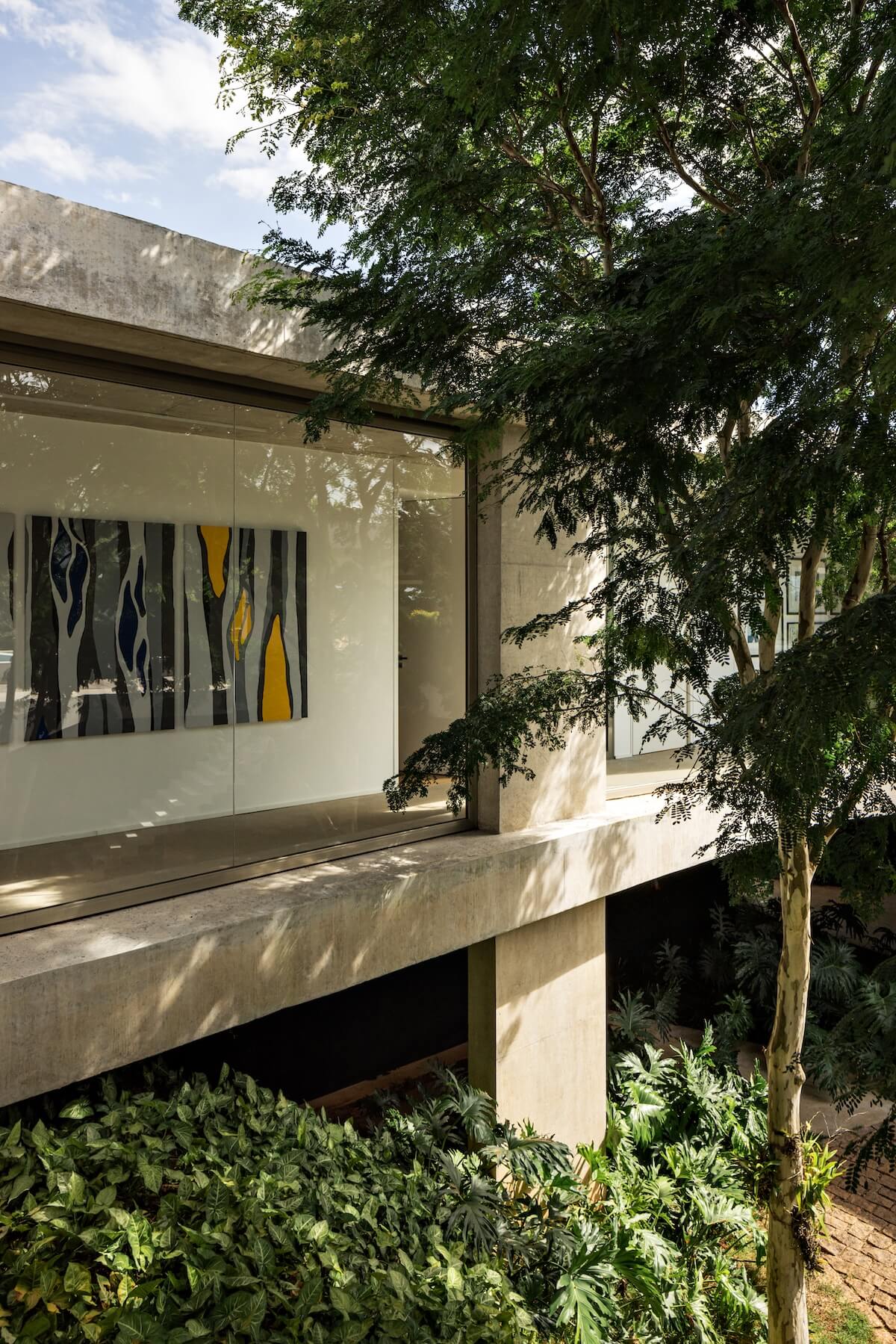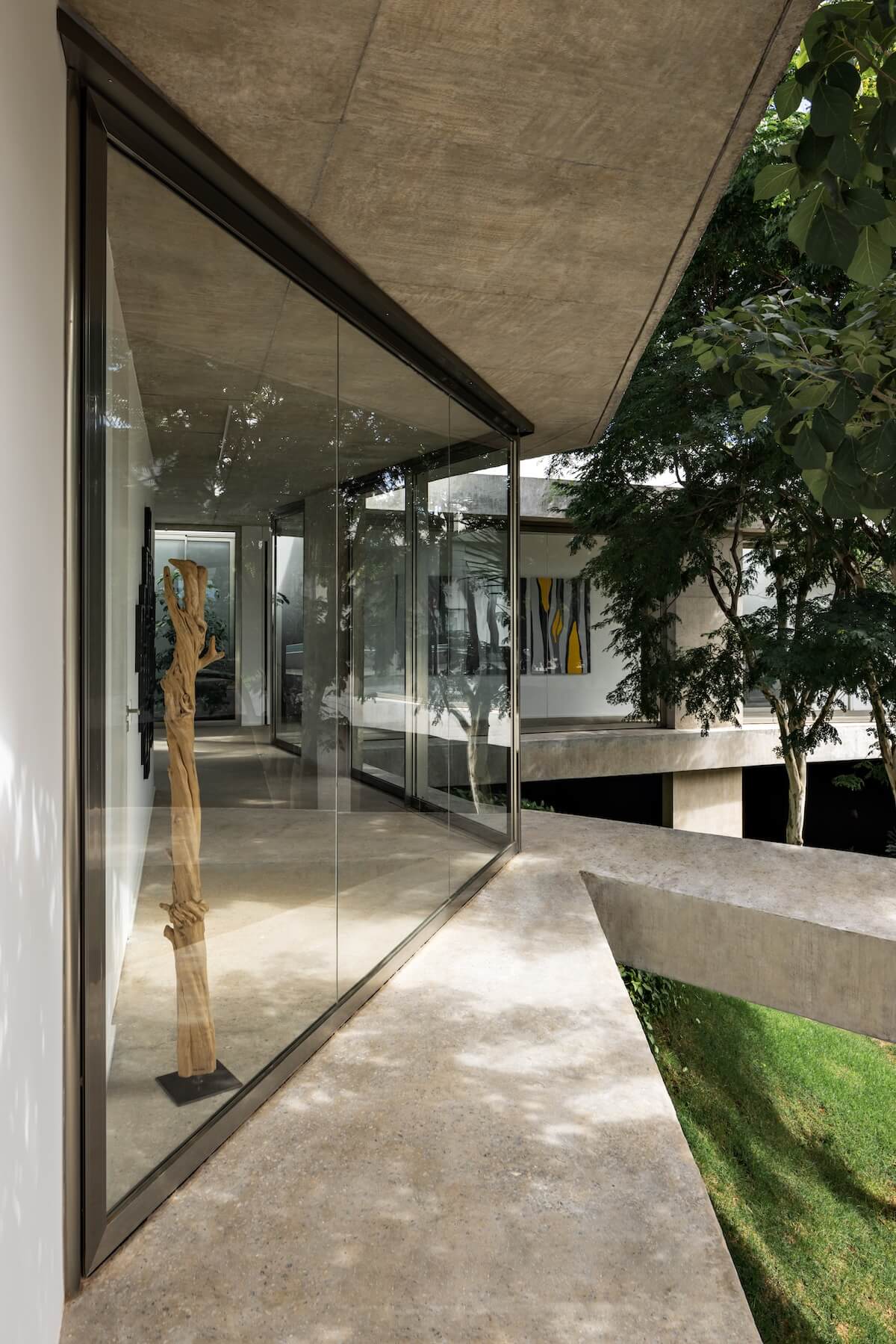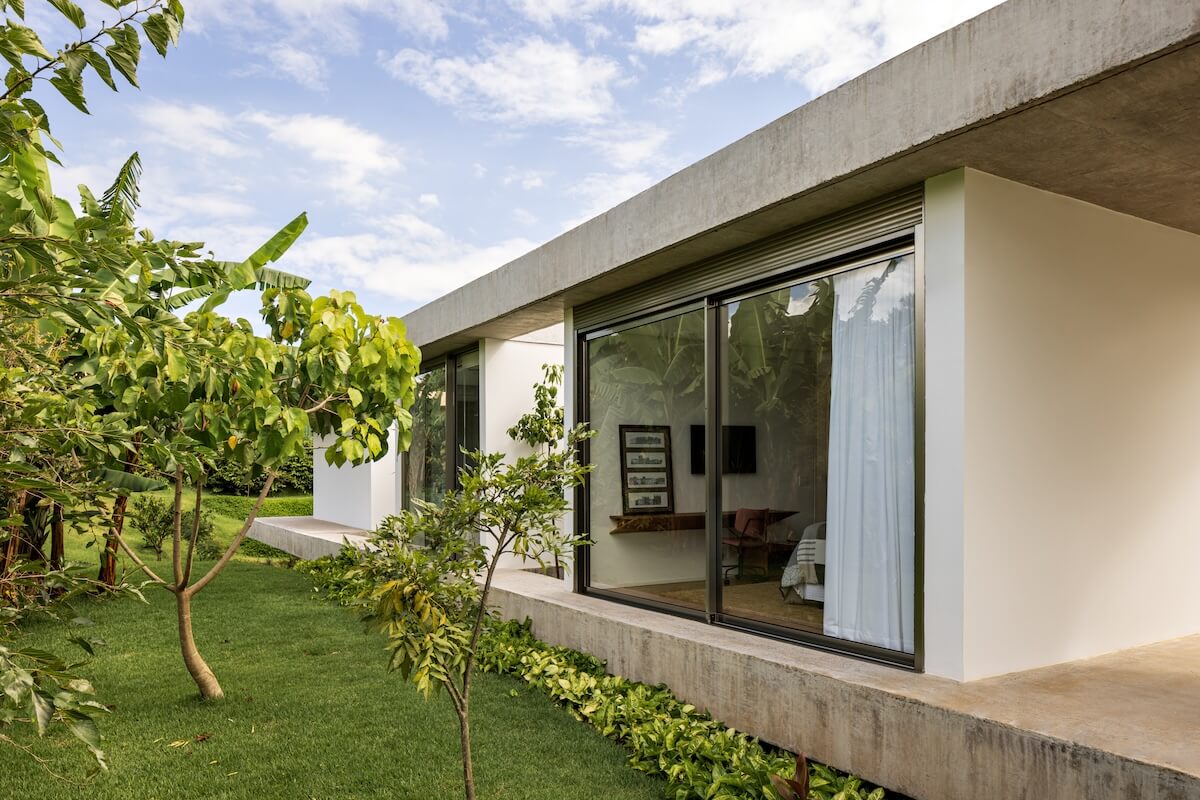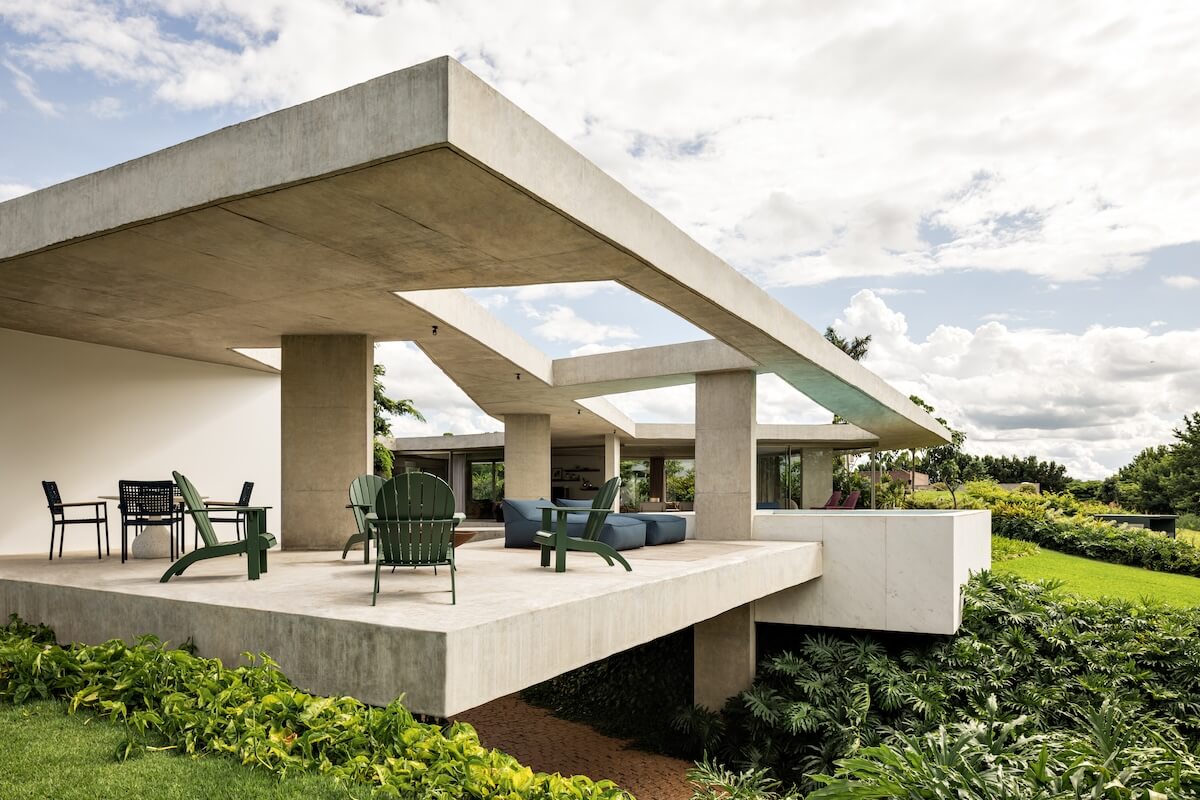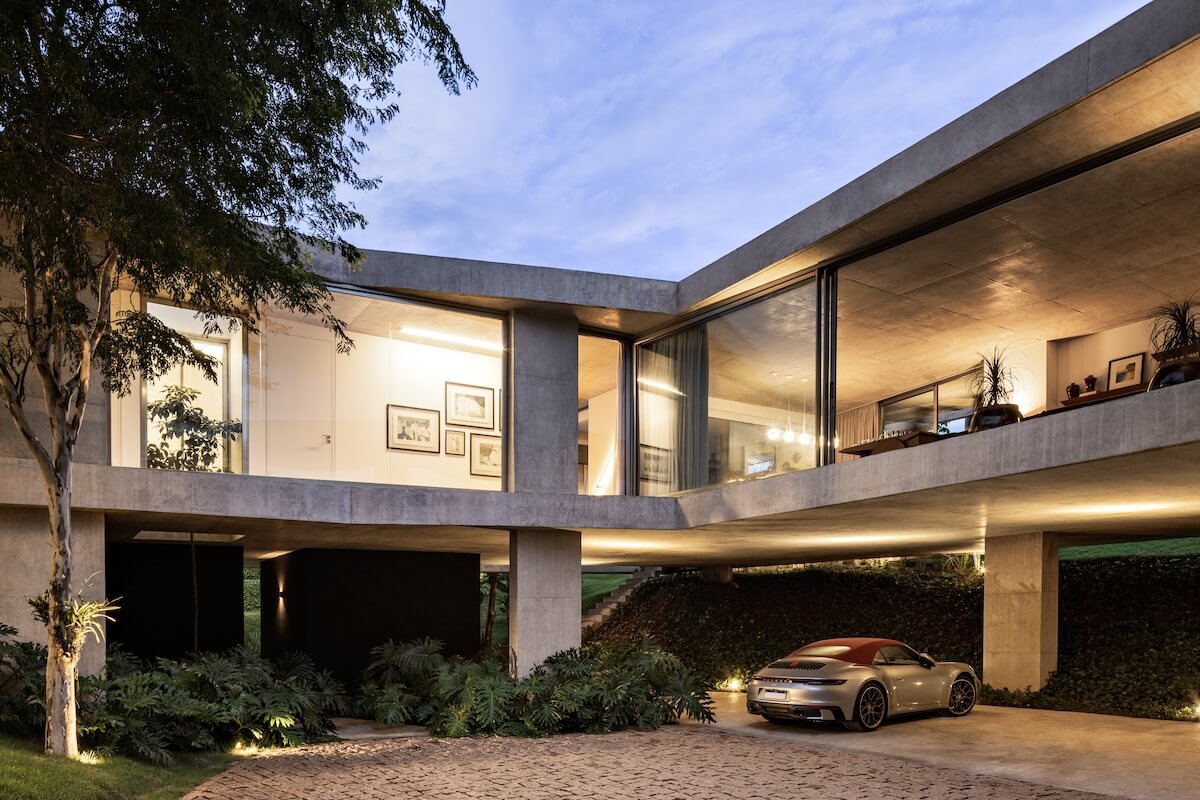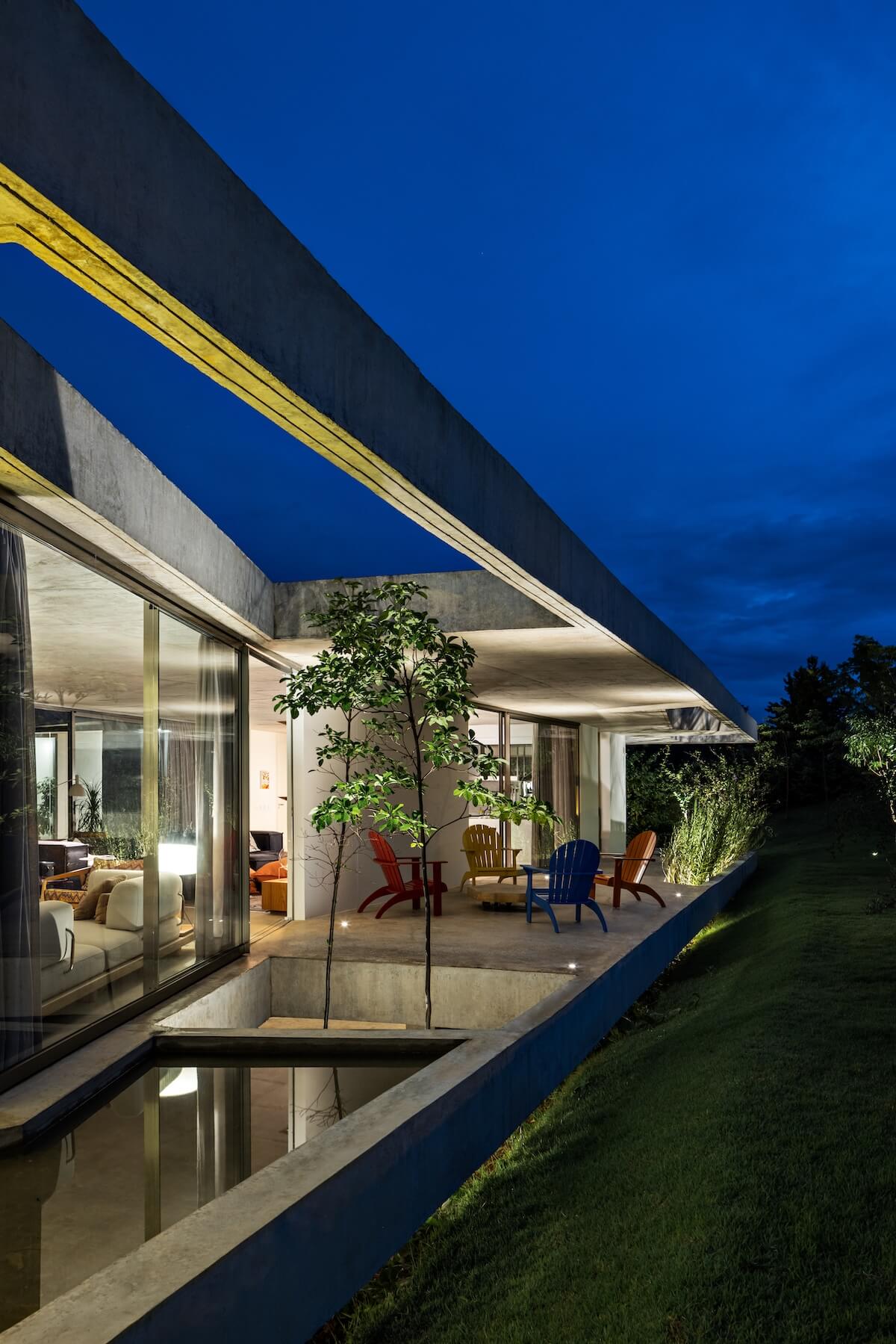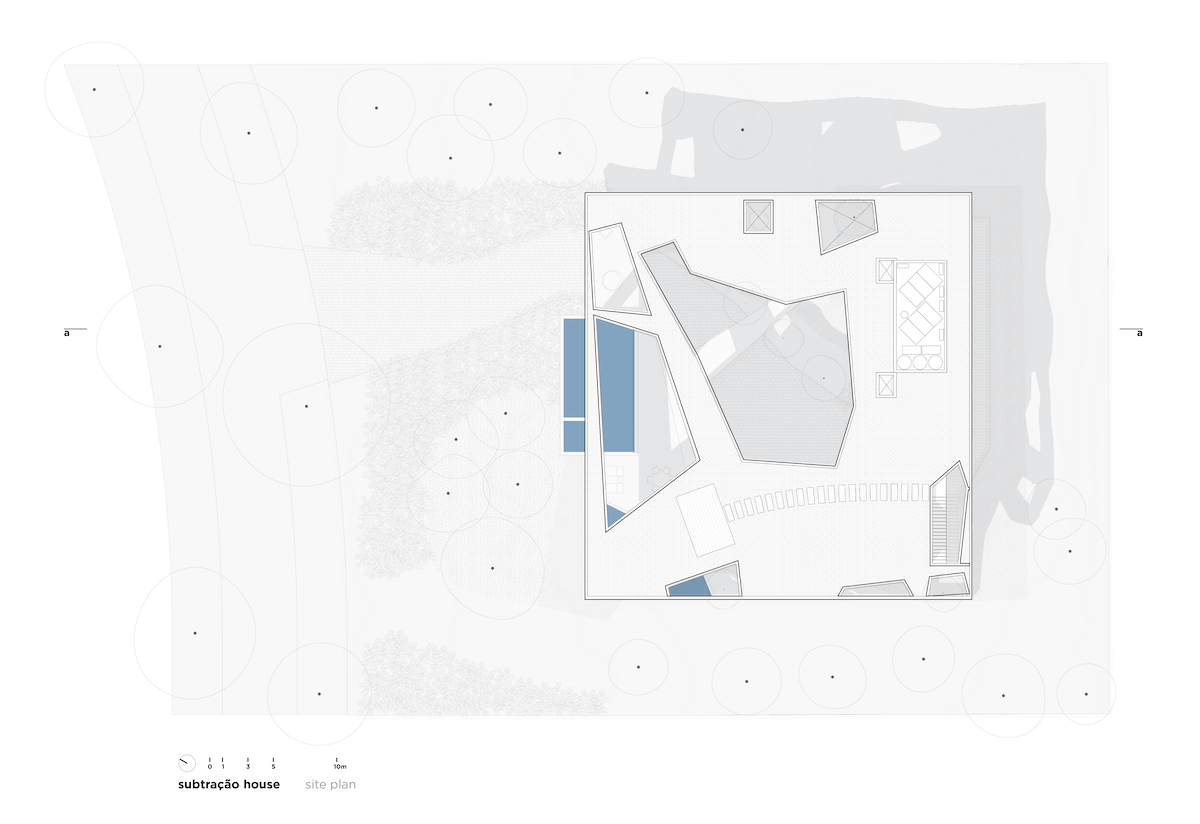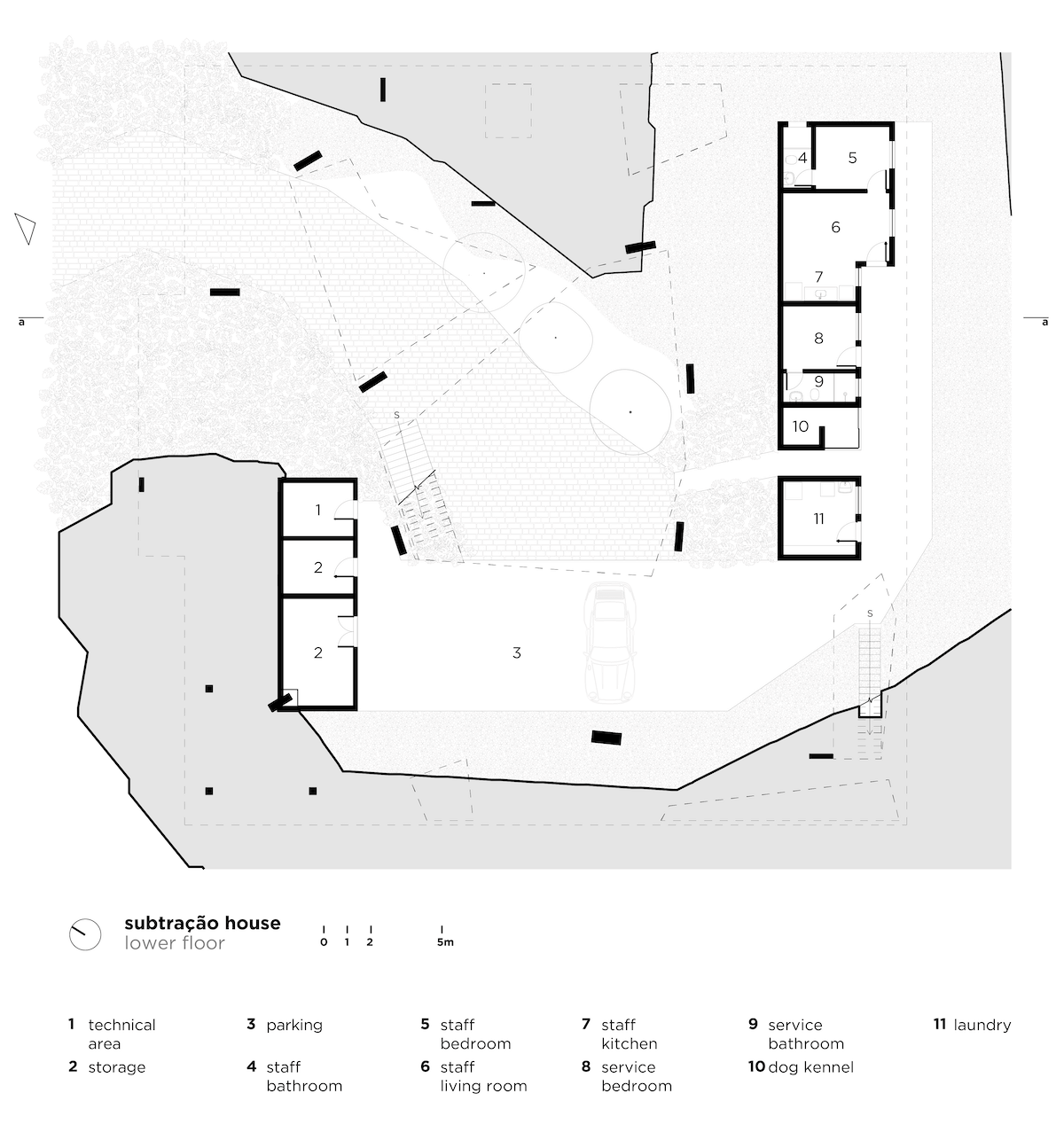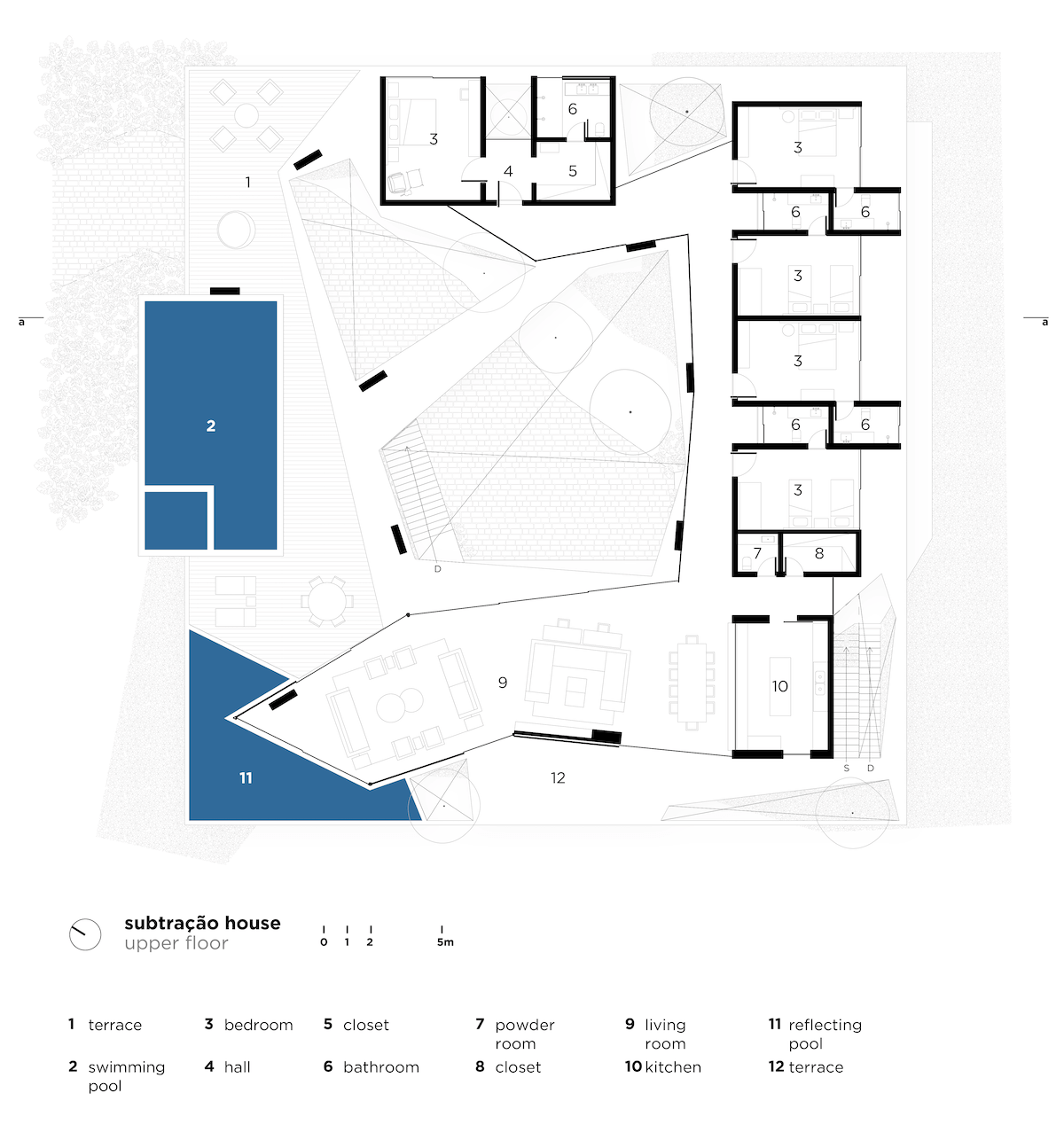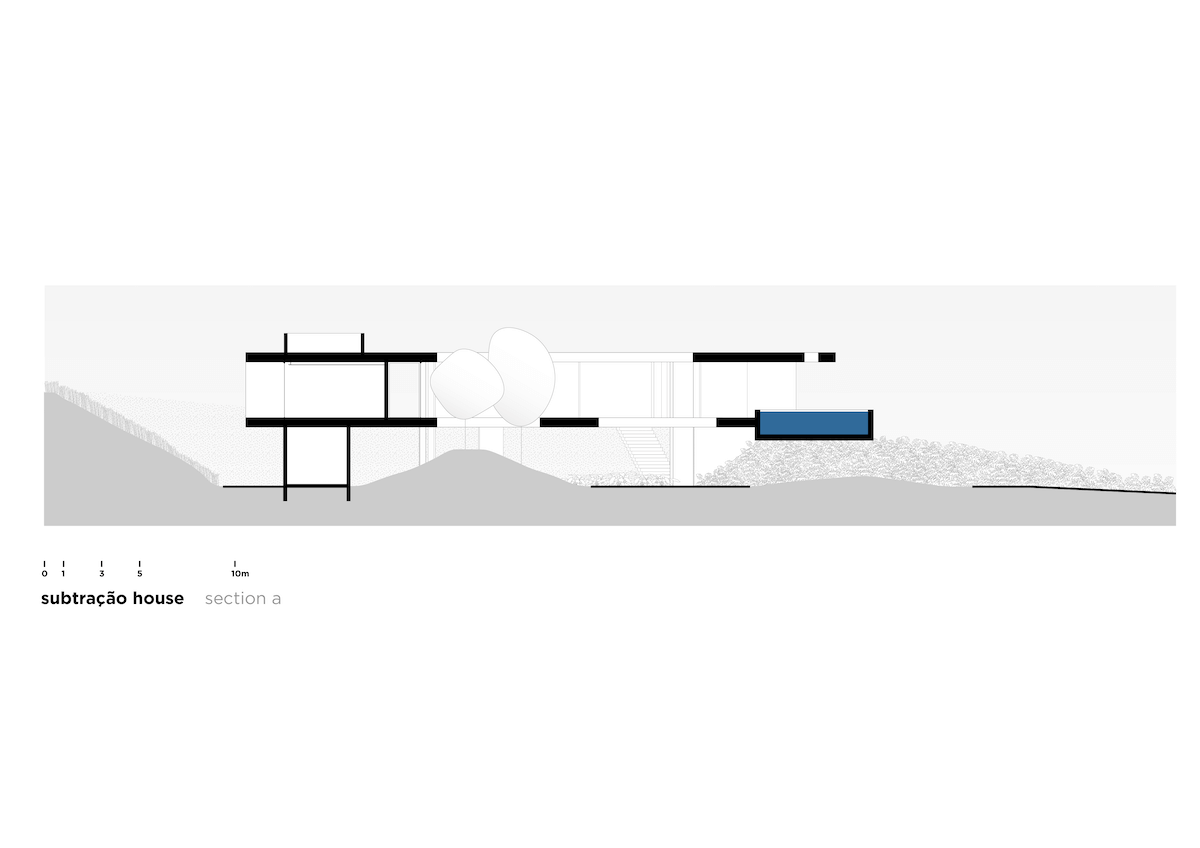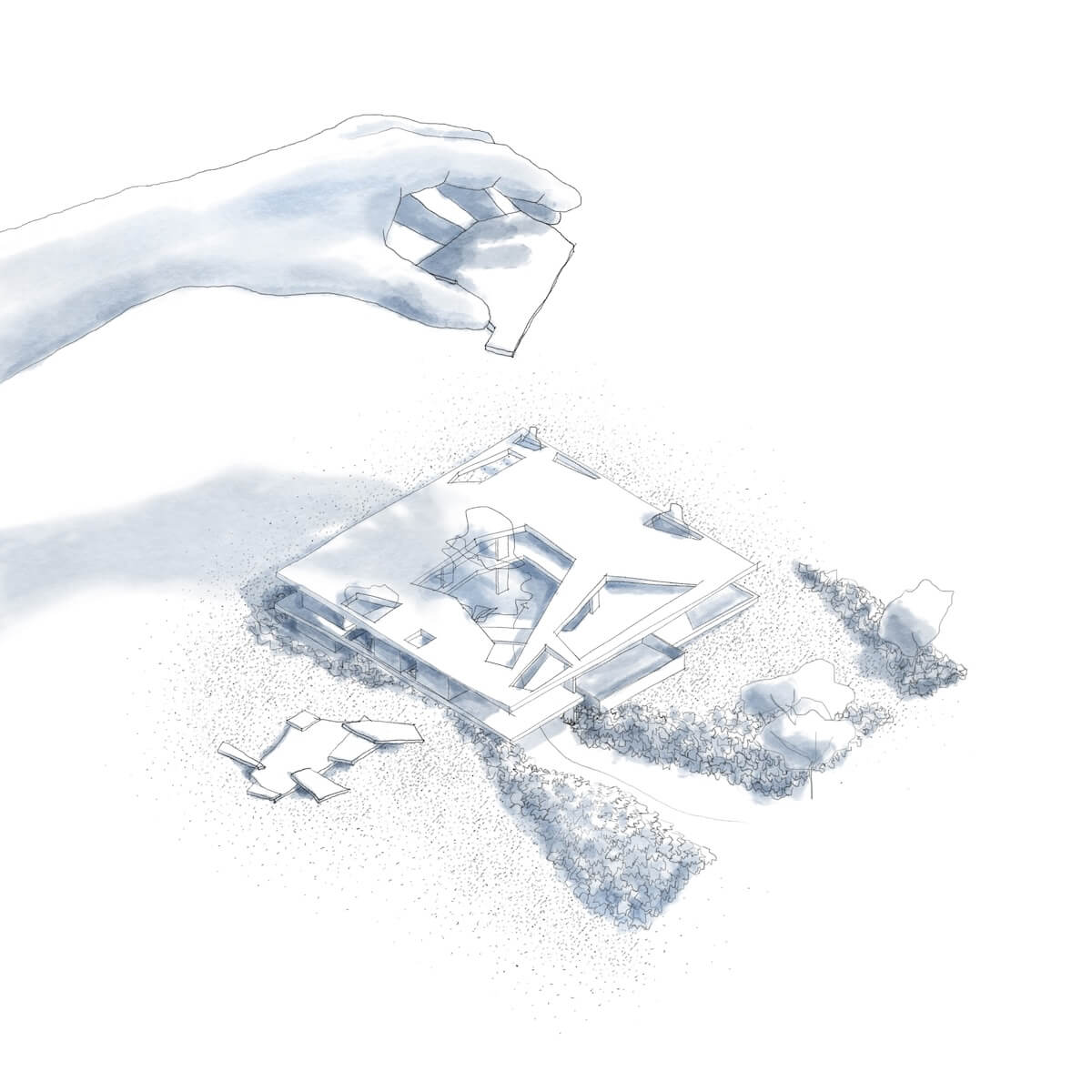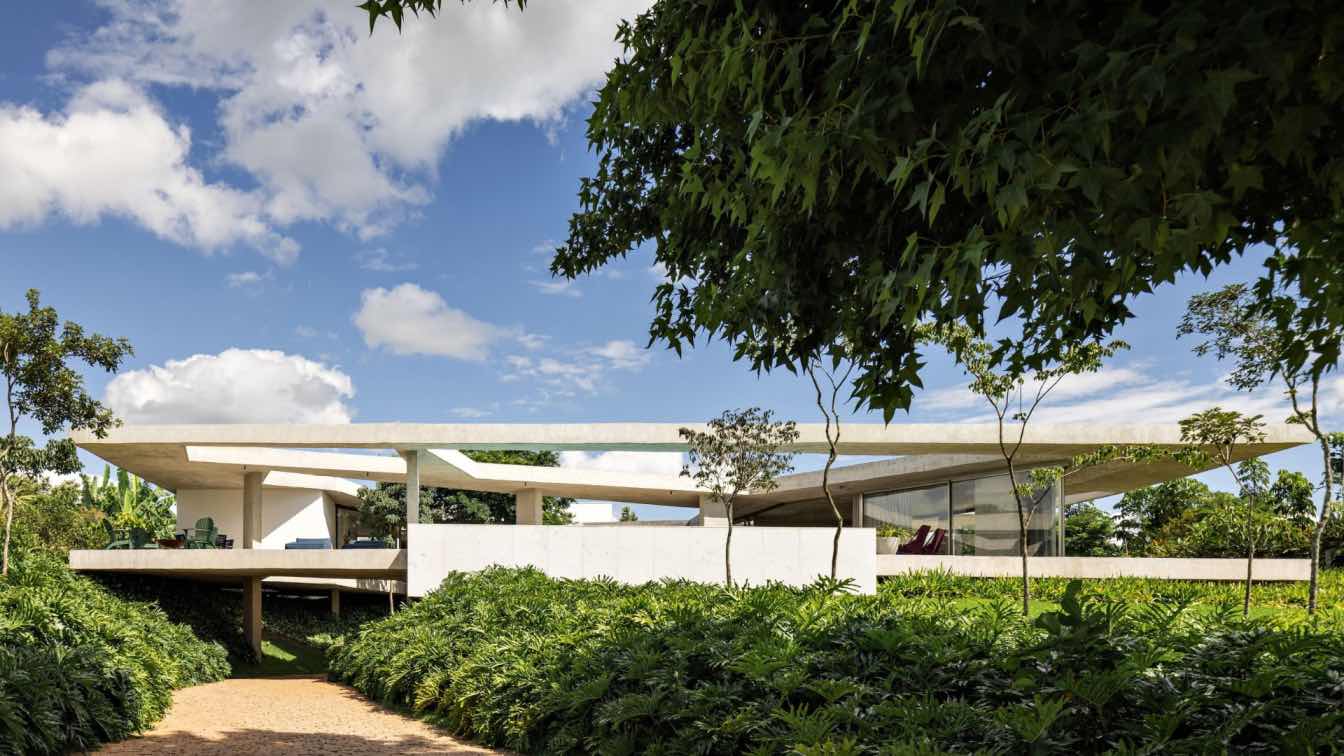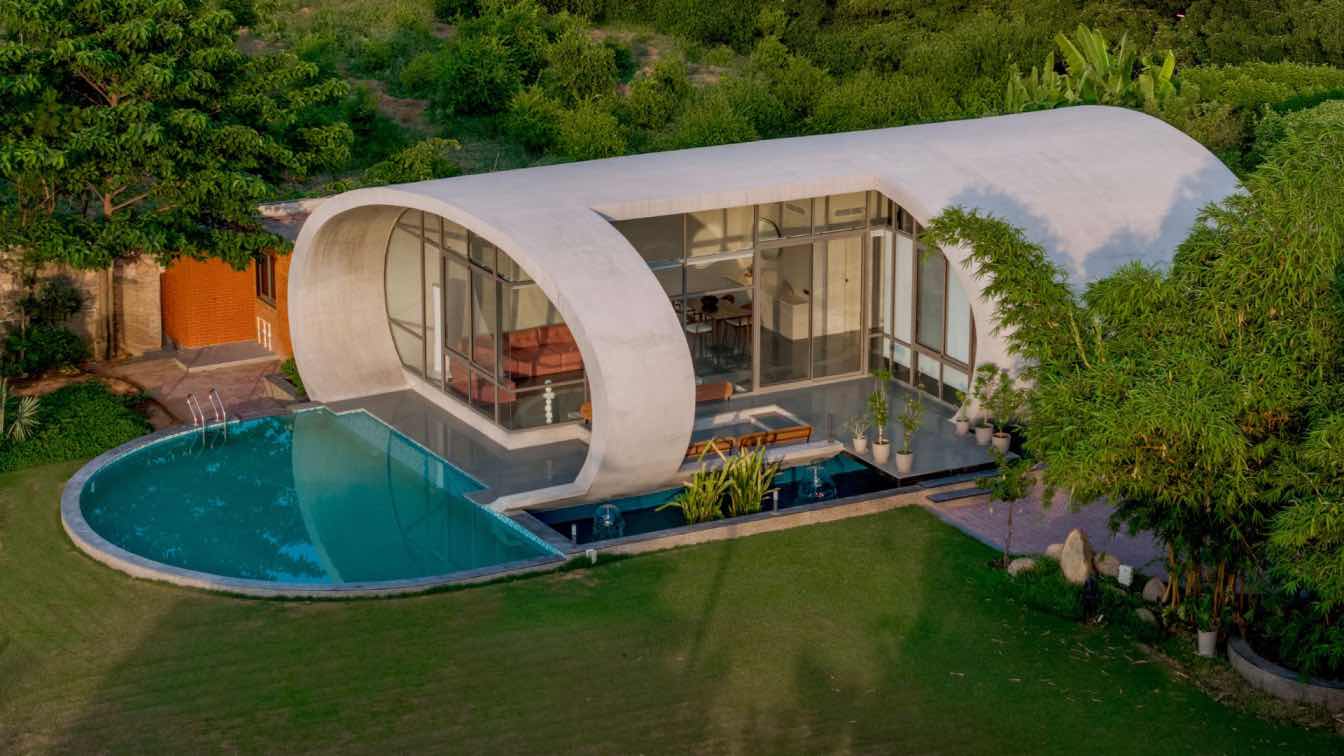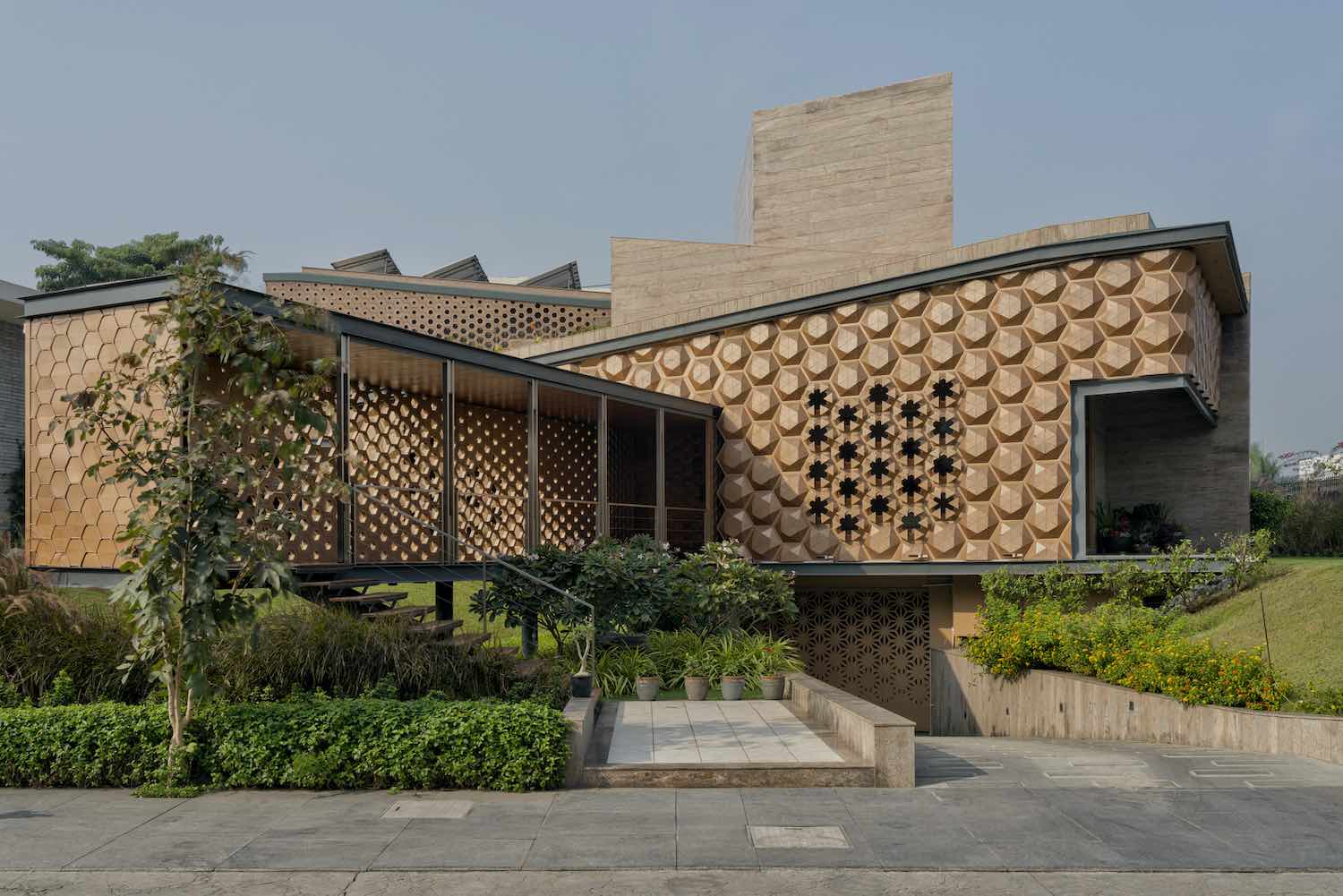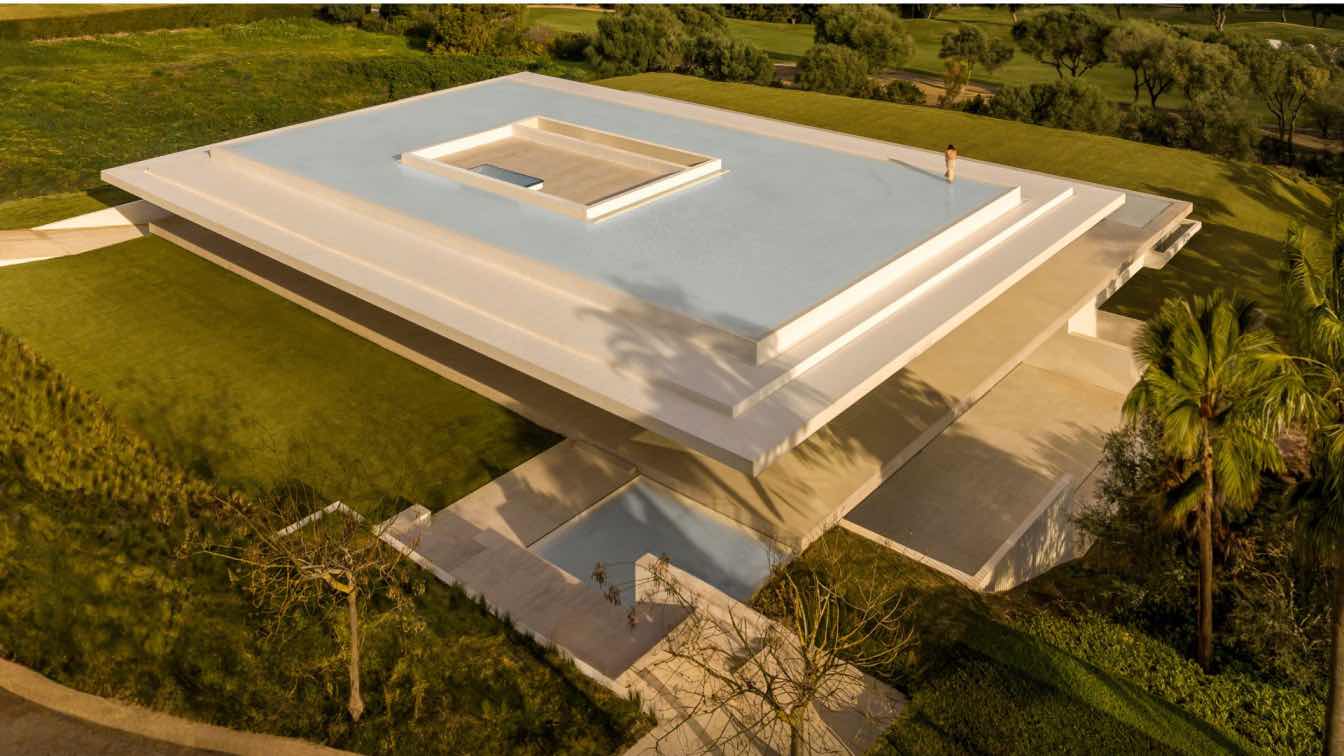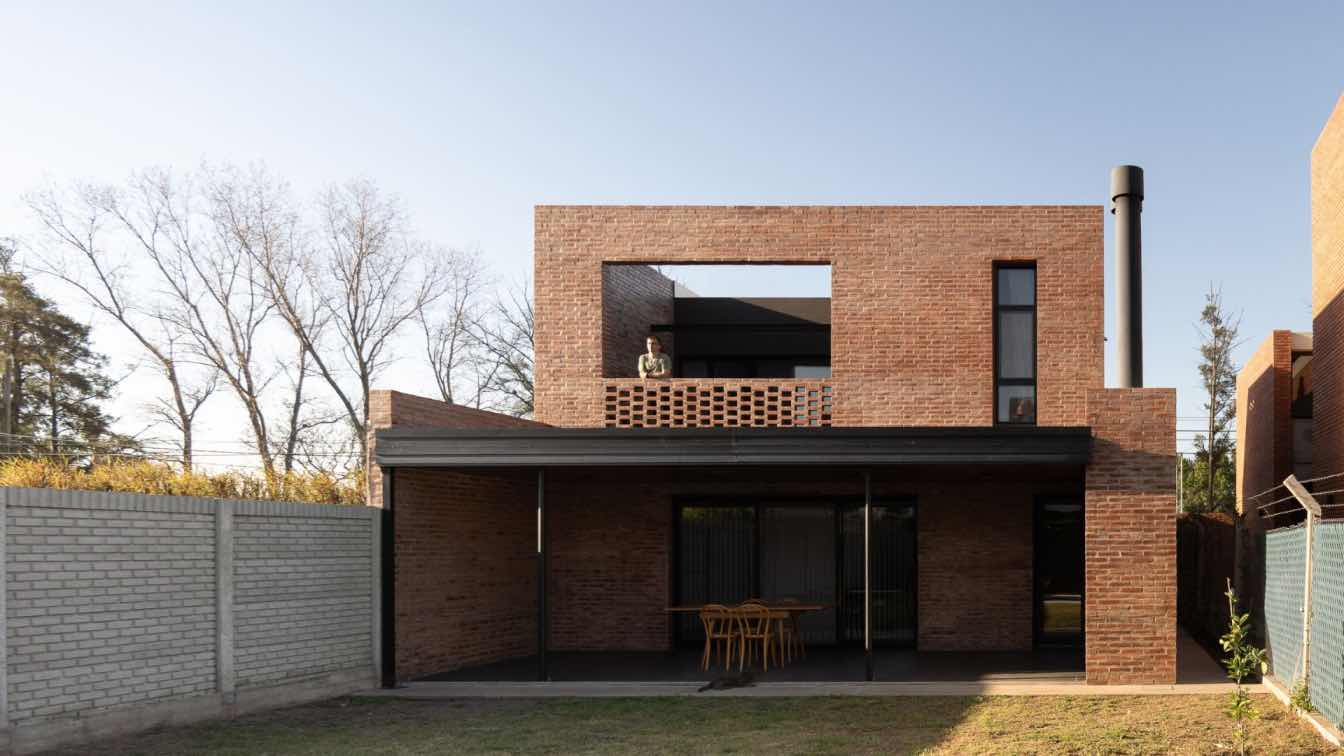Subtraction House is located in the high-end residential condominium Quinta da Baroneza, in Bragança Paulista, just 90 kilometers from the city of São Paulo. The property, designed for a couple and their teenage son, was strategically placed on a square plot, taking advantage of the gently sloping topography and offering generous views. The FGMF architects' concern with preserving the view led to the decision to excavate the land in the central strip, thus creating a basement with a lighted patio, garage and garden at street level, while raising the house above the ground.
The architects decided, when tackling this project, to challenge the prevailing logic in their work, derived from the São Paulo school from which they originate, the structural conception as the creator of space. To do this, they opted for an unusual strategy in FGMF's work: they started with the theoretical conception of two exposed concrete plans, elevated, occupying as much of the plot as possible, respecting setbacks and other legislation applicable to the site. With these dimensions, they studied various organizational charts for occupying the house, with social, intimate, leisure and service areas, until they found the organization that seemed most appropriate. Based on this "occupation" between planes, they studied various cut-outs in the upper and lower planes, creating walkways, voids through which underground gardens cross the building, and gaps of light, but always preserving the limits of the original planes - hence the name subtraction that gives the residence its name, as it was a work of suppression, of cutting out the planes. After this spatial and aesthetic conception, the structure was launched, in a non-regular way, creating a non-Cartesian, albeit efficient, support.
With this refined organization, most of the rooms are integrated with outdoor terraces, providing an intimate connection with the surrounding nature. Meanwhile, the bedrooms and bathrooms are like little white boxes fitted between the flagstones, offering a striking contrast.

The accentuated horizontality of the project is skillfully balanced by strategically placed voids in the horizontal planes, drawn in a mismatched way and associated with the stairs. These voids not only provide multiple views, but also encourage visual contact between the people in the house, whether in the living room, the swimming pool or the garage garden, where the local vegetation grows and occupies part of the voids.
The office points out that the challenge was to make a conventional program take on a far from ordinary appearance, and the result is a synthetic house, with a compact internal area in relation to the expansive external area. Built with reinforced concrete molded on site, the residence has polished concrete finishes on the floor and white-painted masonry, giving it a modernist and minimalist aesthetic at the same time.
The swimming pool, strategically positioned on the first roof slab, is the only element that breaks with the rigidity of the edges of the party's organizing plans, and reflects the light in a soft way, like a predominant break in the exposed concrete, adding a touch of serenity to the environment. Landscaping, considered by architects to be an essential element of architecture, is integrated from the outset, complementing and structuring internal and external spaces.
